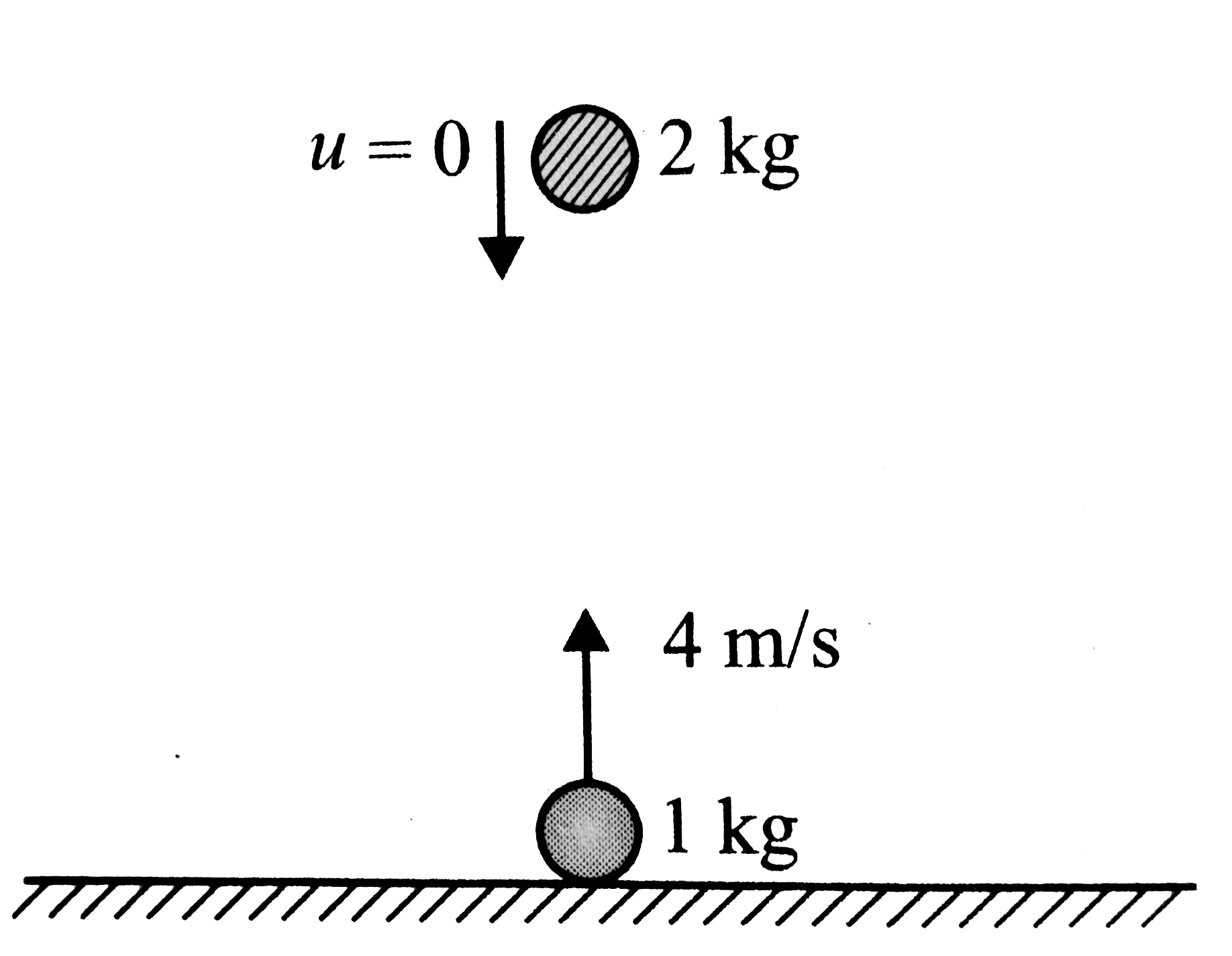A ball of mass 1kg is thrown up with an initial speed of 4m/s. A second ball of mass 2kg is released from rest from some height as shown in Fig. Choose the correct statement (s).

The center of mass of the two balls comes down with· an acceleration of g3
The center of mass first moves up and then comes down
The acceleration of the ,center of mass is g downwards
The center of mass of the two balls remains stationary
Step by step video & image solution for A ball of mass 1 kg is thrown up with an initial speed of 4 m//s. A second ball of mass 2 kg is released from rest from some height as shown in Fig. Choose the correct statement (s). by Physics experts to help you in doubts & scoring excellent marks in Class 11 exams.
Updated on:21/07/2023Topper's Solved these Questions
- IMPULSE AND MOMENTUMBook:ANURAG MISHRAChapter:IMPULSE AND MOMENTUMExercise:L-3,(P-1)
Explore 5 Videos
- IMPULSE AND MOMENTUMBook:ANURAG MISHRAChapter:IMPULSE AND MOMENTUMExercise:P-2
Explore 9 Videos
- IMPULSE AND MOMENTUMBook:ANURAG MISHRAChapter:IMPULSE AND MOMENTUMExercise:Level 1
Explore 110 Videos
- FORCE ANALYSISBook:ANURAG MISHRAChapter:FORCE ANALYSISExercise:Matching type
Explore 13 Videos
- RIGID BODY MOTIONBook:ANURAG MISHRAChapter:RIGID BODY MOTIONExercise:MATCH THE COLUMN
Explore 12 Videos
Similar Questions
Knowledge Check
Ball A is thrown up vertically with speed 10ms. At the same instant another ball B is released from rest at height h. At time t, the speed of A relative to B is
A10B10−2gtC√102−2ghD10−gtA ball is thrown with speed 40m/s at an angle 30∘ with horizontally from the top of a tower of height 60m. Choose the correct option
Athe vertical component of velocity first decreases to zero and then increasesBthe ball reaches the ground after 6sCif the ball strikes the ground at maximum horizontal distance from the tower for this the angle of projection should be less than 45∘Dall option are correctA ball of mass 1kg is dropped from a height of h = 5m. It rebounds losing 50% of its total mechanical energy during collision. Then choose the correct statement(s) from the following .
AAfter collision speed of ball is 5m/sBAfter collision speed of ball is 5√2m/sCThe value of impulse is (10−5√2)Ns.DThe value of impulse is (10+5√2)Ns
At "t=0" ball A is thrown up vertically with speed 10m/sec.At the same instant another ball B is released from rest at height h .At time t ,the speed of A relative to B is
View SolutionA cannon of mass 100 kg is kept on a frictionless floor. If a cannon ball of mass 1 kg is fired from it with a speed of 200 m/s. With what velocity the cannon will move ?
View SolutionA cannon of mass 100 kg is kept on a frictionless floor. If a cannon ball of mass 1 kg is fired from it with a speed of 200 m/s. With what velocity the cannon will move?
View SolutionA ball is thrown upwards with a speed of 20m/s from the ground. Another ball is dropped from rest from a building 80m high at the same time
(i) Find the difference in their height after they have fallen for 2s?
(ii) If the balls are along the same line of motion, when will they colide?
View SolutionA body of mass m kg starts from rest and travels a distance of s m in t seconds. The force acting on it is
View Solution

